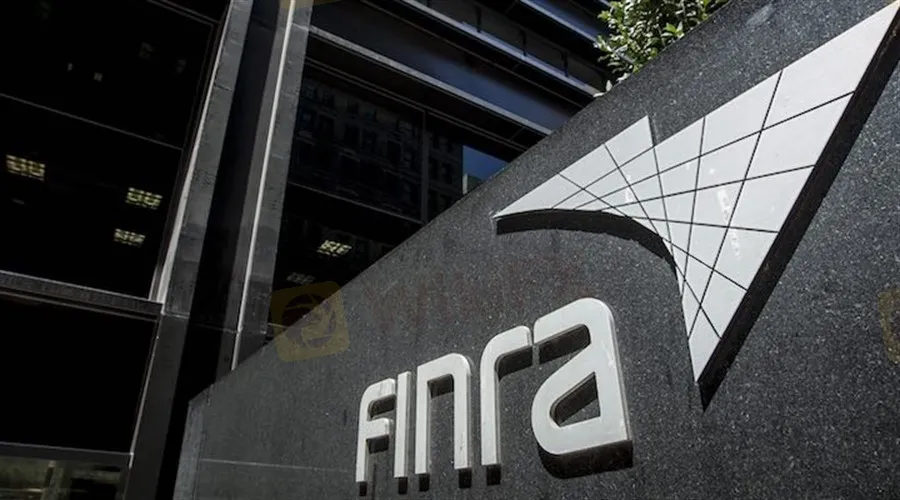简体中文
繁體中文
English
Pусский
日本語
ภาษาไทย
Tiếng Việt
Bahasa Indonesia
Español
हिन्दी
Filippiiniläinen
Français
Deutsch
Português
Türkçe
한국어
العربية
FINRA Fines RBC Capital Markets $360k for Supervisory Failure
Abstract:The failure occurred between June 2018 and February 2020. FINRA recently fined RBC Capital Markets $90k over anticipatory hedging violations.

The Financial Industry Regulatory Authority (FINRA) has hit RBC Capital Markets, a Toronto-headquartered global investment bank, with a censure order and monetary fine of $360,000 for the failure of its supervisory system between June 2018 and February 2020.
Take Advantage of the Biggest Financial Event in London. This year we have expanded to new verticals in Online Trading, Fintech, Digital Assets, Blockchain, and Payments.
The bank, whose principal place of business is in New York, the United States, provides securities transaction and clearance services to its customers and those of its introducing brokers.
FINRA, a membership-based self-regulatory body, said the penalty is for the company‘s failure to “timely or reasonably monitor thousands of employee outside brokerage account statements for compliance with the firm’s trading restrictions” within the period.
The restrictions relate to RBC Capital Markets policies on pre-clearance and holding periods, among others.
The private American regulator said the financial services provider contravened FINRA Rules 3110 and 2010 which demand the supervision of associated persons working for its members firms and also the maintenance of high standards in dealings.
Earlier in June, FINRA also slammed a censure order and a monetary penalty of $90,000 on RBC Capital Markets following Cboe Exchange's allegation of anticipatory hedging allegations against the company.
More Details on the New Fine
According to FINRA, RBC Capital Markets between June 2018 and February 2020 failed to put in place a reasonably designed supervisory system, including written supervisory procedures, to timely review paper statements from employees' outside accounts.
“For example, the firm had no prescribed timeframe to track, reconcile, and review statements. As a result, and due to the manual nature of the paper statement review process, personnel turnover, and outdated technology systems, as of February 2020, the firm had a backlog of approximately 8,950 unreviewed account statements, with some dating as far back as June 2018,” FINRA explained.
The review of the backlog was not completed until February 2021, FINRA said.
The financial watchdog further disclosed that RBC Capital Markets manually tracked receipt of paper statements, had no system in place to notify the firm or employees that statements were missing, and had no procedure for following up on missing statements.
“As a result, in some instances, the firm did not receive paper statements for review. For example, after the firm identified the backlog of unreviewed statements described above, it discovered that approximately 2,600 additional statements had not been mailed to the firm,” the markets supervisor said.
FINRA and Dealerweb
Meanwhile, FINRA recently slapped a $100,000 fine on Dealerweb Inc., an operator of an electronic interdealer platform for mortgage-backed securities.
Dealerweb inaccurately reported approximately 180,000 transactions in TRACE-eligible securities to the FINRA Trade Reporting and Compliance Engine (TRACE) between July 2016 and December 2020, the regulator said.

Disclaimer:
The views in this article only represent the author's personal views, and do not constitute investment advice on this platform. This platform does not guarantee the accuracy, completeness and timeliness of the information in the article, and will not be liable for any loss caused by the use of or reliance on the information in the article.
Read more

What Impact Does Japan’s Positive Output Gap Have on the Yen?
The Japanese government has announced that, due to a tight labor market, the country’s economic output is expected to return to full capacity in the next fiscal year for the first time in seven years.

Malaysia Pioneers Zakat Payments with Cryptocurrencies
Malaysia has taken a significant step in modernising religious practices by becoming the first country to enable zakat payments through digital assets.

WikiFX Review: Is Ultima Markets Legit?
Ultima Markets has played a significant role in the forex trading industry for decades. WikiFX created a comprehensive review to help you better understand this broker. We will analyze its reliability based on specific information, regulations, etc. Let’s get into it.

Colorado Duo Accused of $8M Investment Fraud Scheme
ROI Cash Flow Fund duped investors of $8M in a fraudulent forex trading scheme. McPhee and Posey now face wire fraud and money laundering charges.
WikiFX Broker
Latest News
Russia to Fully Ban Crypto Mining in 10 Regions Starting January 1, 2025
Why is there so much exposure against PrimeX Capital?
Two Californians Indicted for $22 Million Crypto and NFT Fraud
WikiFX Review: Is Ultima Markets Legit?
Colorado Duo Accused of $8M Investment Fraud Scheme
What Impact Does Japan’s Positive Output Gap Have on the Yen?
Malaysia Pioneers Zakat Payments with Cryptocurrencies
FCA's Warning to Brokers: Don't Ignore!
SEC Warns on Advance Fee Loan Scams in the Philippines
Financial Educator “Spark Liang” Involved in an Investment Scam?!
Currency Calculator


